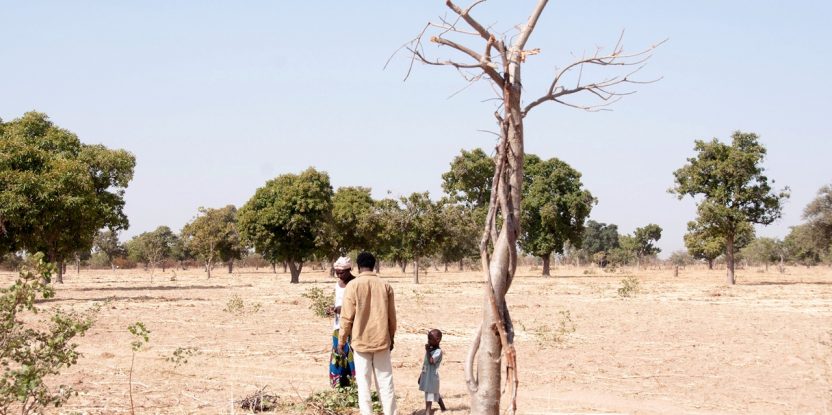The environmental and socio-economic side effects of climate change and land degradation are now well documented across the globe, with many initiatives that seek to address these issues putting researchers and scientists from various disciplines at the forefront. An equally important ‘side effect’ that’s often overlooked, however, is the spiritual.
For people of faith, the spiritual consequences of land degradation can be just as critical as the socio-economic and environmental consequences. This has raised the need to combine science and faith to establish ‘faith-based approaches’ to land restoration.
A recent cross-thematic discussion, convened by the Stakeholder Approach to Risk Informed and Evidence Based Decision Making (SHARED) component within Regreening Africa, sought to do just this by gathering landowners, farmers and community leaders whose land restoration practices were rooted in faith. The goal? To help raise awareness about how we can better understand and address the impact of land degradation through a ‘faith-based lens’.
Insight
A key insight drawn from the engagement was that faith-based approaches to land restoration deepen the understanding that living beings are connected to the earth and can only thrive if it thrives.
During the discussion, leaders from different backgrounds of faith quoted passages from various spiritual books that shared common beliefs that the earth has been given to us by God to protect and that land degradation and the unsustainable use of natural resources have consequences.
Understanding
Second, beyond seeing the nurturing of nature and planting trees as acts of worship, faith-based approaches also share a common understanding that land restoration is a powerful way to improve livelihoods, food security and resilience to the climate crisis.
Institutions
With regard to the role of faith institutions in land restoration, it was noted that spiritual leaders and faith institutions played an important role in land-restoration movements owing to their influence and access to resources.
In many countries, faith institutions are critical implementation partners who mobilize, raise awareness, and inspire changes in behaviour with great ease because they are trusted by communities.
As one leader pointed out during the discussion, in highly religious countries such as Niger, Somalia and Senegal, efforts to solidify and increase the scale of regreening initiatives would fail without consulting, and gaining the support of, faith institutions.
Stewardship
Spiritual leaders and faith institutions also play an important role as stewards of peace through land restoration. A significant amount of the conflict that arises on the African continent is related to security and resources that come from the land. When the climate crisis and land degradation worsen, such conflicts also tend to increase in scale. However, faith-based approaches provide a unique solution to this issue, pointing to specialized initiatives such as ‘peace tree’ planting to restore land and security to people.
Wealth of resources
Faith institutions have a vast wealth of resources that can be leveraged to establish on-the-ground partnerships for land restoration. One of the key opportunities that was highlighted in the discussion was the potential of places of worship, and other related infrastructure, to serve as tree nurseries and spaces that promote environmental stewardship.
For too long, faith communities have been ignored in development initiatives. However, when we start to view all members of society as affected by major present-day issues like land degradation, we can begin to see them as stakeholders who can contribute varied but specialized approaches to these issues.
We want you to share Forests News content, which is licensed under Creative Commons Attribution-NonCommercial-ShareAlike 4.0 International (CC BY-NC-SA 4.0). This means you are free to redistribute our material for non-commercial purposes. All we ask is that you give Forests News appropriate credit and link to the original Forests News content, indicate if changes were made, and distribute your contributions under the same Creative Commons license. You must notify Forests News if you repost, reprint or reuse our materials by contacting forestsnews@cifor-icraf.org.
